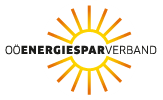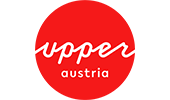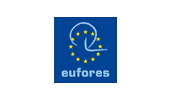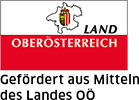European Energy Efficiency Conference
|
Date: Venue: |
04 - 06 March 2020 |

|
|
Conference fee: |
330 Euro, includes the following conferences:
|
|
|
Conference languages: |
English, German |
|
|
Organisation and conference office: |
OÖ Energiesparverband |
|
|
WHAT is the European Energy Efficiency Conference?
Becoming the first climate-neutral continent by 2050 is an ambitious goal which requires ambitious measures. Energy efficiency as the "first fuel" of the energy transition is at the centre of this roadmap for making the EU‘s economy sustainable. By addressing these topics and more, the annual European Energy Efficiency Conference attracts over 400 participants from over 50 countries each year. In 2 days, the event offers delegates:
Clean. Competitive. Connected. |
||
PROGRAMME
The European Energy Efficiency Conference includes the following Conferences:
- Energy Efficiency Policy Conference (5 March)
- Industrial Energy Efficiency Conference (5 March)
- Smart E-Mobility Conference (6 March)
- Green Financing Workshop (5 March)
- Young Energy Efficiency Researchers Conference (4 March)
- Workshop Horizon 2020 (6 March)
- Technical Site Visits: Energy Efficiency (6 March)
- Workshop "New opportunities for energy agencies" (4 March)
Thursday, 5 March 2020
Energy Efficiency Policy Conference
09.00 Europe's new Green Deal: Energy efficiency at the centre
Becoming the first climate-neutral continent by 2050 and simultaneously boosting the economy, improving people‘s health and quality of life, caring for nature, and leaving no one behind – these ambitious goals require ambitious measures. Energy efficiency as the "first fuel" of the energy transition is at the centre of this roadmap for making the EU‘s economy sustainable.
- Welcome and opening
Markus Achleitner, Regional Minister for Economy and Energy, Upper Austria - A Green Deal for Europe
Radoš Horáček, European Commission, DG Energy - The IEA Energy Efficiency Report 2019
Jeremy Sung, International Energy Agency - A Green Deal for Upper Austria
Gerhard Dell, OÖ Energiesparverband, Austria - Beyond energy efficiency: results from EU projects
Anette Jahn, European Commission, EASME - R&D as an energy efficiency policy
Theodor Zillner, Federal Ministry for Transport, Innovation & Technology, Austria
11.00 Voices Platform: Views and opinions
Your opinion counts! In this interactive session, you are invited to express your opinion in the context of a large EU survey. You will also hear which priorities for the energy transition are important to young people from research and industry.
- Your opinions and views:
the Energy Efficiency Watch Survey live - Young voices for the energy transition
Lakshmishree Venugopal, India / Germany
Lurian Pires Klein, Brasil / Portugal
Alex Epik, Ukraine
Meri Olenius, Finland
Irene di Padua, Italy / Belgium
12.00 Narrative Session: Creating a better society through the local energy transition
In this session, we show with convincing examples how, on the local level, a better society is already being created through the energy transition. These examples demonstrate how the ambitions of the Green Deal can be delivered in real life.
- Narratives and counter narratives for the local energy transition
Hanne May, Dena, Germany - Creating a better community image
Vlasta Krmelj, Energy Agency of Podravje, Slovenia - Improving health through energy-efficient renovation
Seamus Hoyne, Limerick Institute of Technology, Ireland - Competitiveness through energy efficiency
Nina Riehle, Ras Al Khaimah, United Arab Emirates
Chairperson:
Jan Geiss, Eufores, Coordinator Energy Efficiency Watch Project
This conference is organised in the context of the H2020 "Energy Efficiency Watch 4" project: www.energy-efficiency-watch.org
Thursday, 5 March 2020
Industrial Energy Efficiency Conference
14.00 Industry 5.0: Independent from fossil fuels
Independence from fossil energy is becoming a key factor for industrial competitiveness. Following automation and digitisation, "Industry 5.0 – decarbonisation" will characterise the next big step in the industrial transformation. We present programmes from the three leading economic world powers paving the way for the industrial energy transition.
- Industry 5.0 – Competitiveness through the energy transition
Dr. Gerhard Dell / Christiane Egger, OÖ Energiesparverband, Austria - Europe: climate neutrality for energy-intensive industries
Alberto Carrillo Pineda, CDP Europe - China: The Climate Plants Programme
Jing Sang, China Council for an Energy Efficiency Economy
- Energy efficiency and more: the EP100 Initiative
Maria del Mar Rojas, The Climate Group, UK
Game changers for the industrial energy transition
We present how R&D, artificial intelligence and global collaboration can be important game changers for the industrial energy transition.
- Artificial intelligence: Increasing energy efficiency and productivity
Robert Feldmann, McKinsey, Germany - Global collaboration: Energy efficiency throughout the world
Marco Matteini, United Nations Industrial Development Organisation - R&D: NEFI - The New Energy for Industry innovation network
Wolfgang Hribernik, Austrian Institut of Technology, Austria
- Dacarbonisation of industrial heat and cold: L'Oréal and ICCEE
Francisco Puente, ESCAN, Spain
Energy Efficiency in Action: Leaders in decarbonisation
Leading industrial companies show how to stay competitive in a changing world through the energy transition.
- Tiger: Green manufacturing of coating systems
Marielen Haider-Madl, Tiger, Austria
- Financing energy efficiency in industry: An example from Willbee Energy
Lukasz Feldman, Willbee Energy, Poland - Towards the most efficient injection-molding company worldwide
Hannes Jungmair, Starlim, Austria - Carlsberg Group: Brewing for a better world
Adam Pawelas, Carlsberg, Switzerland
19.00 Evening programme
Thursday, 5 March 2020
Green Financing Workshop
14.00 Green financing: unlocking the local energy transition
The local energy transition requires investments! Although investment capital is often available in public and private funds, bridging the gap to concrete project implementation remains a big challenge. Having a toolbox of smart financing instruments and programmes unlocks possibilities. Learn, in this interactive session, which instruments work in what contexts and how they can be successfully applied in your region or city.
- Smart financing: peer-to-peer learning in the Prospect project
Mia Dragović Matosović, Institute for European Energy and Climate Policy, The Netherlands - Opportunities for energy efficiency of the European Investment Bank
Assen Gasharov, European Investment Bank, Luxembourg
A toolbox of financing instruments
- "Superhomes" enabled by ELENA
Paul Kenny, Tipperary Energy Agency, Ireland - Facilitation services for scaling up green financing
Christine Öhlinger, OÖ Energiesparverband, Austria - Bigger is better: Bundling sustainable energy investments
Anna Camp Casanovas, Provincial Council of Girona, Spain - Let savings pay the bill: the Assen Service Costs Model for home renovation
Anna Krämer, Cities Northern Netherlands - Energy cooperatives: partners in the energy transition
Stanislas d‘Herbemont, REScoop.eu - Be smart: blending funding and financing
Martin Kikas, Tartu Regional Energy Agency, Estonia - A digital platform to bridge the gap between investors and projects
Velimir Segon, North-West Croatia Regional Energy Agency, Croatia - "Smartening up" our city with energy efficiency revolving funds
Jaroslav Klusák, City of Litomerice, Czech Republic - Guaranteeing safety, health, comfort and affordability: LABEEF
Nicholas Stancioff, Funding for Future, Latvia - Supporting the roll out of renewables through regional co-investment
Olivier Roussel, SEM Energies Hauts-de-France - Peer-to-peer learning session – Planning replication and roll out
19.00 Evening programme
Wednesday, 4 March 2020
Workshop "New opportunities for energy agencies"
14.00 ManagEnergy Networking Event
In this interactive session, we offer tailored information for energy agencies on how to create new opportunities for their organisations with the Green Deal. Come strengthen your network for new partnerships and be inspired by fellow energy agencies as they present their top programmes, projects and tools to trigger more sustainable energy investments in their regions and cities. Energy agencies play a key role in catalysing the process of change. Together, we figure out how!
EU policies and programmes for energy agencies
- The Green Deal – what is in it for energy agencies?
Radoš Horáček, European Commission, DG Energy - Upcoming EU funding opportunities
Anette Jahn, European Commission, EASME - ManagEnergy – Supporting energy agencies in leading the energy transition
Seamus Hoyne, Limerick Institute of Technology, Ireland
From inspiration to action: venturing into new fields
Following an inspiring showcase of successful initiatives by peer energy agencies, we work together on how our agencies can venture into new fields, on funding solutions for these new activities and on developing new investment projects.
- A viable financing scheme for deep renovation of multi-family houses
Daniel Encinas Martín, Agencia Extremeña de la Energía, Spain - Triggering the industrial energy transition
Gerhard Dell/Christiane Egger, OÖ Energiesparverband, Austria - Bringing the regional energy transition into the digital age: the TerriSTORY tool
Étienne Viénot, AURA-EE, France - How to develop an integrated hydrogen economy
Boštjan Krajnc/Nejc Jurko, KSSENA, Slovenia - Mastering EU financing for the local energy transition
Piergabriele Andreoli, Provincial Energy Agency of Modena, Italy - Engaged citizens as allies of energy agencies: the ENES-CE project
Alen Visnjic, Medjimurje Energy Agency, Croatia - Tackling climate protection and youth employment: the Yenesis project
Savvas Vlachos, Cyprus Energy Agency, Cyprus - Guiding large cities through their energy transition
Ion Dogeanu, Local Energy Agency Bucarest, Romania - Supporting municipalities in profiting from power system flexibility
Michael Sillén, Greater Stockholm Energy Agency, Sweden
19.00 Evening programme
Friday, 6 March 2020
Smart E-Mobility Conference
09.00 Strategy and Market Session: E-Mobility on the move
In 2020, e-mobility will really get going in Europe: car manufacturers will roll out many new models and important legislation from the Clean Energy Package for charging infrastructure will come into force. In this session, you will learn about how the energy transition in the mobility sector is progressing.
- Opening and welcome
Gerhard Dell, OÖ Energiesparverband, Austria - European e-mobility policy initiatives
Saki Gerassis-Davite, European Commission, DG MOVE - The electric revolution – charged with opportunities
Jayson Dong, European Association for Electromobility (AVERE) - China's EV boom - Status and outlook
Yali Zheng, China Society of Automotive Engineers, China - New mobility – new car factories
Ulrike Beyer, Fraunhofer Institute for Machine Tools and Forming Technology IWU, Germany
Innovation circle batteries: R&D trends, re-use, life cycle
Where is the development of batteries for electric vehicles leading? Which materials and systems will prevail? What about life cycle considerations, recycling or reuse of batteries? This session gives answers!
- EV batteries: R&D trends in materials and systems
Egbert Figgemeier, Forschungszentrum Jülich, Germany - Life Cycle Assessment of electric vehicle batteries
Lluc Canals Casals, IREC, Spain - Re-use of car batteries
Pia Alina Lange, European Industry Association for Advanced Rechargeable batteries (RECHARGE)
Best Practice Session: Electrify your fleet
The energy transition in the mobility sector: Which actions lead us there? In our search for win-win scenarios, we can learn from ambitious companies that have already electrified their fleets and are now harvesting the benefits.
- Experiences with electric fleets in the Netherlands
Roel Swierenga, Hansa Green Tours, The Netherlands - Increasing employee loyalty with EVs
Herbert Ortner, ÖkoFEN, Austria - SAP's fleet of 3,000 electric vehicles
Jürgen Rennar, SAP, Germany - E-vans and e-trucks – first real-life experiences
Franz Weinberger, MAN Truck & Bus, Austria - Business models for electric company fleets in practice
Stefan Baumann, The Mobility House, Germany
11.00 Workshop Horizon 2020 (in English only)
Opportunities for Young Energy Researchers
- Introduction to the EU Research and Innovation Programme Horizon 2020
- The programme priorities and open calls
- Do's and don'ts in Horizon 2020
- Outlook to the next programme Horizon Europe
The session is organised in cooperation with the network of Energy National Contact Points (NCPs) (www.c-energy2020.eu).
The sole responsibility for the content of this webpage lies with the authors. It does not represent the opinion of the European Communities. The European Commission is not responsible for any use that may be made of the information contained there in.










